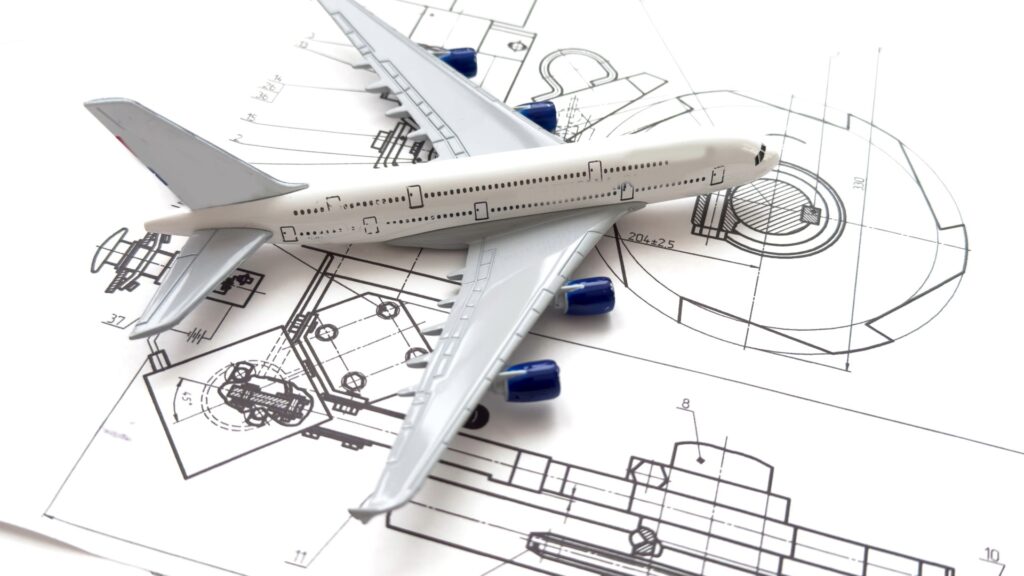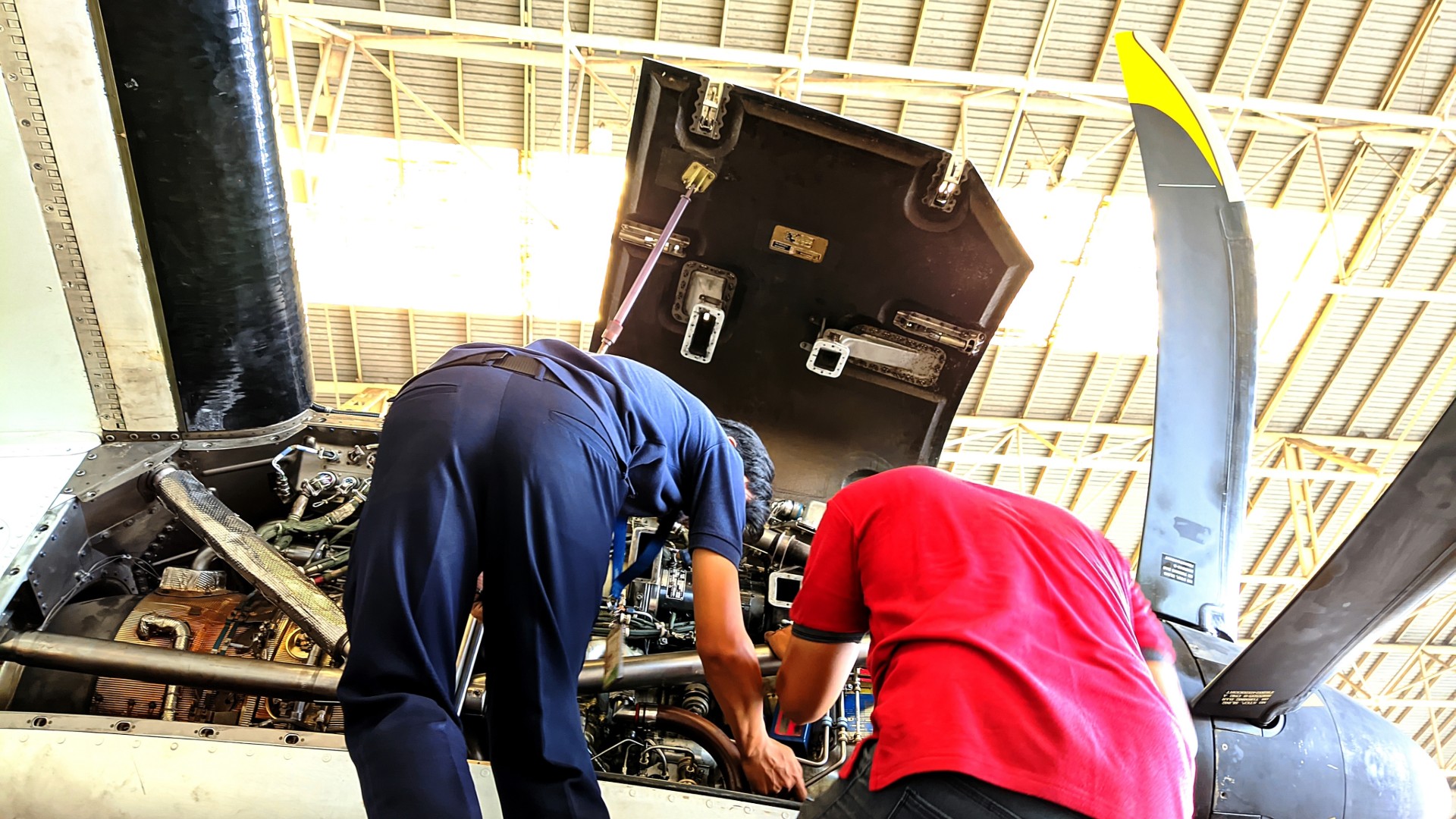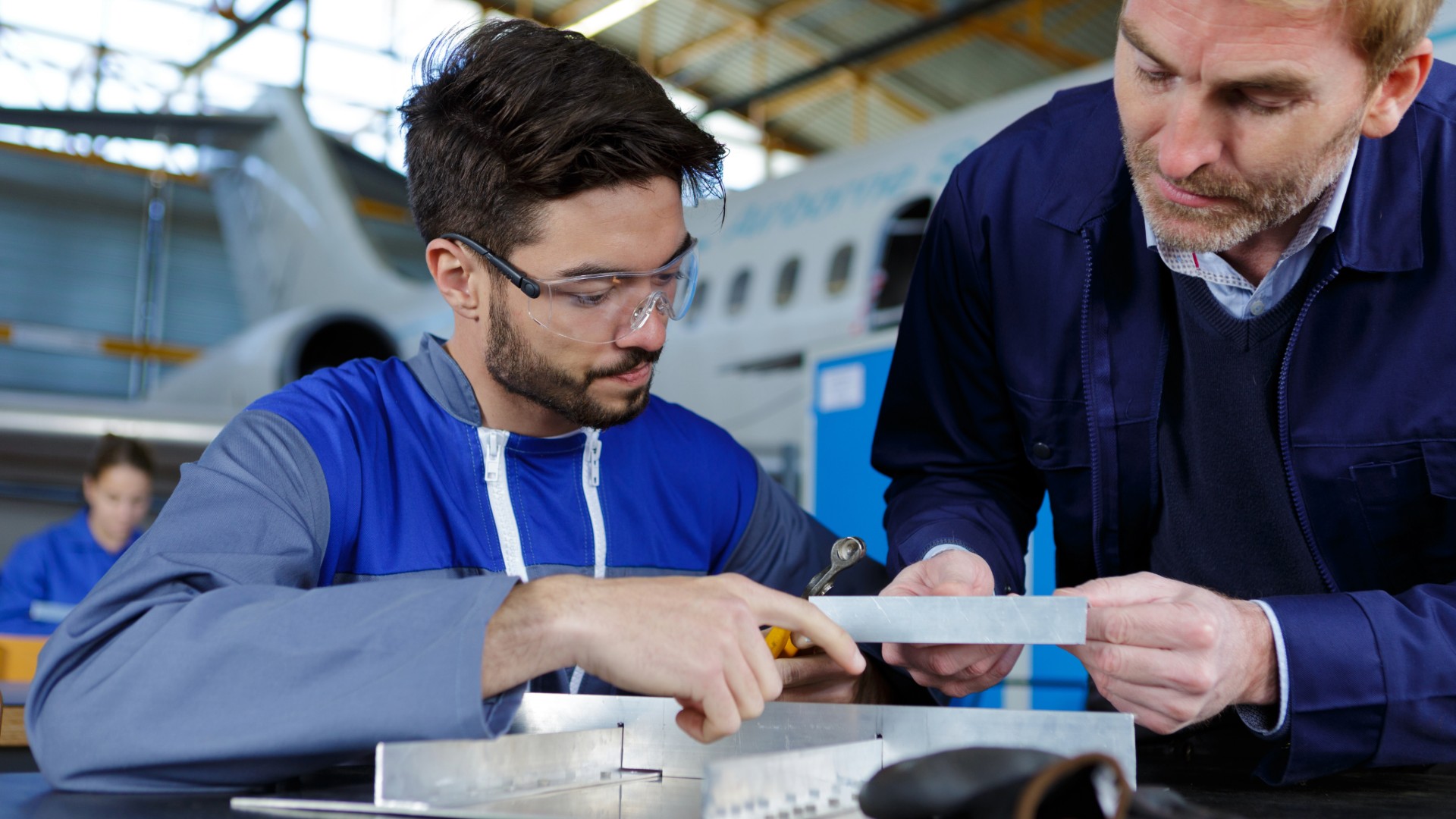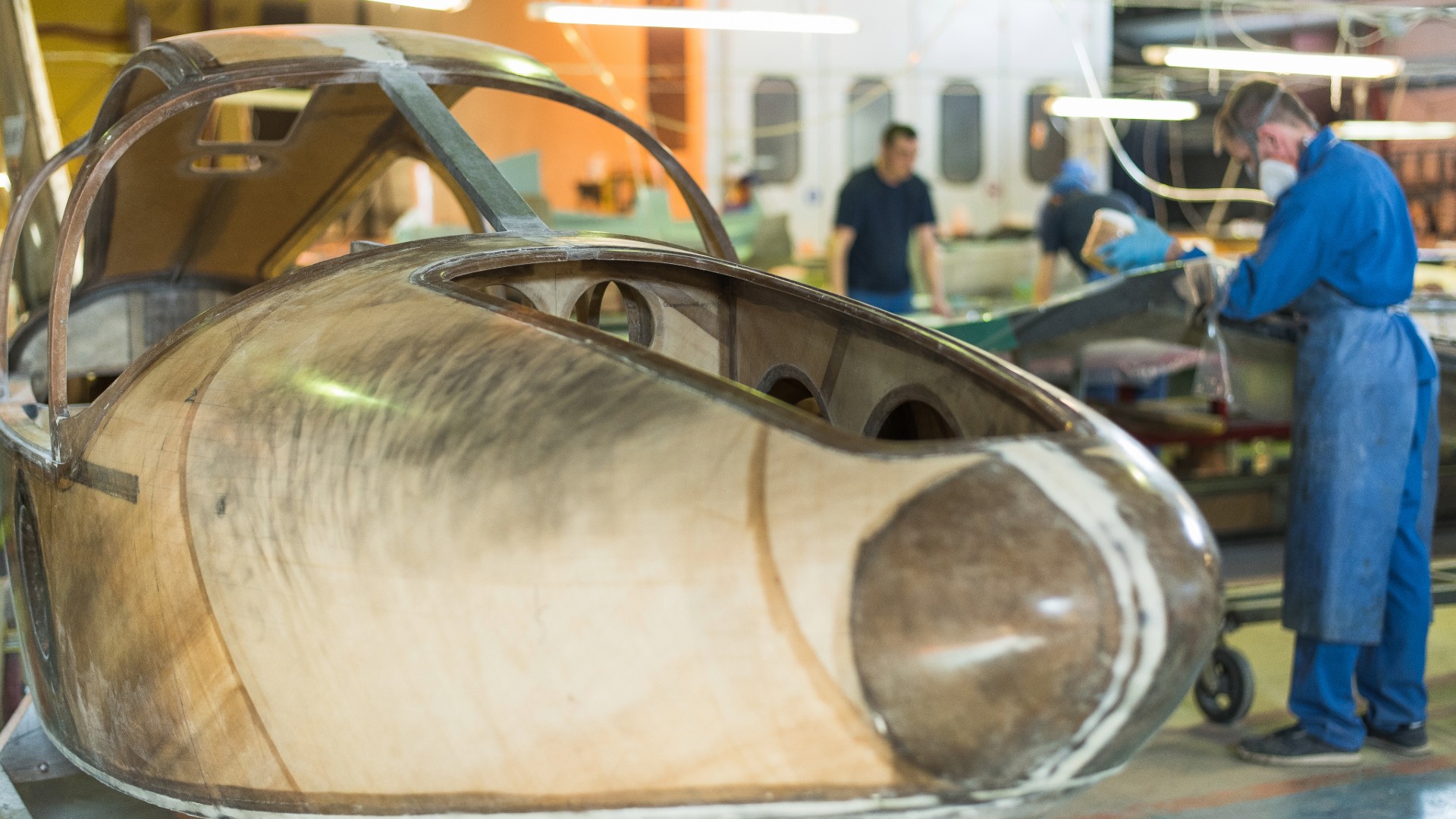Aeronautical engineer jobs have been the centre of attention and are most required in fields like aviation, defense, and large-scale manufacturing. These roles demand individuals with advanced technical skills and a knack for inventive problem-solving, especially given the complexity of modern aircraft systems and propulsion mechanisms. The industry requires precision, not only in pursuing regulatory compliance but also in upgrading operational effectiveness. As aerospace technologies grow and evolve with time, companies are increasingly hiring professionals for aeronautical engineer jobs who can adapt and adjust to shifting standards and rigorous safety needs, candidates who ensure high levels of reliability and innovation across the industry.
Aeronautical engineer jobs mean far more than technical handiwork; they intertwine with purpose-driven development. Professionals in this field work on critical projects, whether embedded in military operations that are giving a new definition to next-generation aerospace manufacturing or innovating within government research. As jobs in aeronautics continue to grow worldwide, there’s a pressing demand for individuals who are adept at analytical problem-solving, creative thinking, and the mastery of modern engineering tools. Quite simply, their expertise plays a major role in efficient budget management, enhancing system performance, and ensuring the reliability of aerospace technology well into the future.
For the industry to stay ahead and remain relevant, aeronautical engineering jobs offer a means to adopt the latest technologies while mitigating the risks associated with aerospace projects. Whether it’s improving aircraft design or developing next-generation defense systems, hiring experts with the right skill set is a tough job for achieving measurable results and ensuring project success. This article outlines the most important skills required to grow and flourish in aeronautical engineer jobs and the value these roles bring to high-stakes aerospace initiatives.
Why Aeronautical Engineers Are Critical to High-Performance Projects
Aeronautical engineer jobs are significance for developing aircraft design, propulsion systems, and defense-related aerospace initiatives. Engineers in these positions utilize their extensive technical expertise to design structures and systems that achieve the highest levels of performance, dependability, and safety. Whether maximizing aerodynamic efficiency or improving propulsion systems, aeronautical engineer jobs necessitate precision-driven techniques that have a direct impact on the outcome of high-stakes projects.
Aeronautical engineers ensure that materials, systems, and layouts are designed to provide optimum performance while reducing dangers. Similarly, in the development of propulsion systems, aeronautical engineers prioritize fuel efficiency, thrust optimization, and temperature management, all of which significantly impact operating capabilities. In defense aerospace programs, where mission readiness and system integrity are important, engineers’ ability to integrate modern technology while adhering to rigorous standards lays the groundwork for strategic success.
Technical accuracy is highly demanded in aeronautical engg jobs because it reduces costs, improves safety margins, and increases operational efficiency. Even slight design defects or calculation errors may cause considerable downtime, regulatory issues, or increased maintenance costs. Organizations can minimize such risks, maintain certification compliance, and save project deadlines by hiring experts for aeronautical engg jobs.
Furthermore, aeronautical engineering jobs provide a high return on investment. Engineers who provide efficient designs and dependable systems help decrease downtime, increase equipment lifecycles, and reduce long-term operational expenses. As jobs in aeronautics rise and expand in industries such as military, aviation, and research, recruiting competent experts becomes a strategic investment in attaining both performance excellence and cost-effective project completion.
Core Technical Skills for Aeronautical Engineering Jobs
Aeronautical engineer jobs require a strong mix of technical expertise and practical application. Professionals in aeronautical engineering jobs must excel in areas such as aerodynamics, propulsion, avionics, structural analysis, and materials science to ensure the development of high-performance, safe, and reliable aerospace systems.
Jobs in aeronautics are available in both established aerospace corporations and upcoming technology firms, including those working on unmanned aerial vehicles (UAVs), electric propulsion, and advanced flight systems. Entry-level positions often require a combination of academic excellence and practical experience, such as internships or project-based work. Experts who are building a solid foundation early on and gain hands-on expertise are more likely to grow within aerospace engineering roles.
Equally, collaboration and clear communication are essential basics required and expected from any expert, specifically for jobs in aeronautics. Because Aerospace projects almost every day require input from diverse teams almost every day, including design, manufacturing, operations, and others, which means engineers have to work across disciplines and effectively deliver complex ideas. The good contributors strike a balance between analytical rigor and creativity, ultimately helping organizations run more smoothly, reduce costly delays, and achieve better results.
Interpersonal and Cognitive Skills that Drive Team Success
While technical expertise forms the basic and crux of aeronautical engg jobs, the ability to communicate, collaborate, and think critically is equally important in high-performance aerospace environments. Aerospace engineering roles today require professionals who can integrate technical solutions within multidisciplinary teams, ensuring that projects stay on track and meet rigorous quality and safety standards.
Effective communication is a core skill for engineers in aeronautical engg jobs. Whether coordinating with design teams, regulatory bodies, or operations personnel, clear and precise communication ensures that complex technical information is understood and applied correctly. Miscommunication can lead to costly delays or errors, particularly in defense or aviation projects where safety and reliability are of paramount importance.
Teamwork is essential in resolving complicated issues that arise during aircraft development or propulsion testing. Aerospace engineering positions frequently involve collaboration with professionals in electronics, materials science, and software development. Aeronautical engineers who succeed in cooperation can assist in optimizing workflows, decreasing project bottlenecks, and contribute to new ideas that improve overall system performance.
Creativity and flexibility are also valuable cognitive abilities. Aerospace technology is always developing; therefore, experts in aeronautical engineer jobs must be willing to learn fresh methods, accept newer tools, and reconsider traditional approaches. Those who accept change and continually improve their abilities through certifications or additional training are frequently better suited for leadership positions and difficult project responsibilities.
To summarize, aeronautical engineer jobs demand more than just technical expertise. Professionals who excel in interpersonal communication, teamwork, analytical thinking, and creative problem-solving are better suited to the demands of today’s aerospace projects. Organizations that invest in hiring engineers with these skills for aeronautical engineer jobs are more likely to achieve greater efficiency, faster innovation, and higher ROI in the defense, aviation, and industrial sectors.
Career Pathways and Job Prospects in Aeronautical Engineering
Opportunities for aerospace engineering positions are growing in the aviation, defense, space research, and other industries, indicating a positive career outlook. Among the most sought-after engineering positions are those in aerospace engineering, as companies engaged in military systems, government aerospace initiatives, and private sector innovations actively seek experts with specific expertise.
Both well-established aerospace companies and emerging tech companies offer jobs in the field of aeronautics, including roles involving sophisticated flight systems, electric propulsion, and unmanned aerial vehicles (UAVs). It is common for entry-level jobs to require both academic achievement and real-world experience, such as internships or project-based employment. Development in aeronautical engg jobs is more possible for professionals who establish a strong foundation early on and get practical experience.
Employers are placing a higher value on engineers who stay current with new materials, software tools, and regulatory requirements as aerospace missions become increasingly complex. Obtaining postgraduate degrees or advanced certifications improves employment opportunities and provides access to leadership positions. Aeronautical engineering jobs that require expertise in fields such as structural analysis, avionics, or propulsion often come with greater responsibility and higher pay.
Additionally, there is a growing need for aeronautical engineers worldwide. Private aviation firms, government organizations, and defense contractors are funding new initiatives that require interdisciplinary skills. Professionals who possess technical expertise, along with problem-solving and communication skills, are highly sought after, as aeronautics occupations are growing in countries such as the U.S., Europe, Australia, and India.
To ensure project efficiency and long-term success, companies hiring for aeronautical engg jobs must choose applicants with the appropriate mix of training, experience, and flexibility. Engineers who contribute to creating safer aircraft, more effective propulsion systems, and innovative aerospace solutions deliver a quantifiable return on investment, reduced operational downtime, and industry-standard compliance.
Educational and Certification Requirements for Aeronautical Engineering Jobs
To qualify for aeronautical engineer jobs, candidates must build a strong educational foundation and pursue certifications that enhance their technical capabilities. Aeronautical engineering jobs demand proficiency in physics, mathematics, and problem-solving, making academic preparation a crucial step in career advancement within the aerospace and defense sectors.
Candidates for the majority of aeronautical engg jobs must finish their Class 12 coursework with a minimum aggregate of 50–60% in Physics, Chemistry, and Mathematics. To gain admission to reputable engineering schools, candidates must pass rigorous entrance tests, such as the JEE Main or JEE Advanced. When selecting applicants for aeronautical engineer jobs, their academic achievements are used as the initial screening step.
A bachelor’s degree in aeronautical or aerospace engineering from an accredited university is considered to be the bare minimum need for the majority of aerospace engineering employment. The program’s primary focus areas include aerodynamics, propulsion, avionics, and materials science, ensuring that students get both theoretical and practical expertise pertinent to military and aviation systems. Engineers can also gain real-world experience through internships, apprenticeships, or industrial training, experience that is often required for higher-level roles.
Certifications and further education are seen by employers as markers of a candidate’s dedication to the industry when hiring experts for aeronautical engineer jobs. Not only can postgraduate degrees or specialist certifications in structural analysis, propulsion systems, or flight testing improve technical depth, but they also improve employability in high-stakes aerospace projects. Many aeronautical engg jobs give preference to those with advanced schooling and proven practical experience, particularly in defense and international aerospace companies.
To sum up, aeronautical engineering jobs require an intensive education, real-world experience, and continuous skill development. By funding applicants who meet these requirements, companies can reduce risk, stay compliant, and achieve better results in industrial projects and aerospace programs.
High-Paying Aeronautical Engineer Roles: Expertise Meets Opportunity
Aeronautical engineer jobs offer some of the most lucrative career paths in aerospace, defense, and advanced research sectors. Professionals in aerospace engineering roles who combine technical expertise with leadership capabilities are often entrusted with high-value projects, contributing to innovations in aircraft design, propulsion, and mission-critical systems. These roles not only offer competitive compensation but also provide significant opportunities for long-term career growth.
Among the highest-paying aeronautical engg jobs are positions such as Aircraft Design Engineer, Flight Test Engineer, Aerospace Systems Engineer, Aircraft Structural Engineer, and Propulsion Systems Engineer. Engineers in these roles are responsible for ensuring optimal performance, fuel efficiency, safety compliance, and advanced functionality in complex aerospace systems. Many of these positions require extensive experience and a proven track record of solving critical engineering challenges.
Jobs in aeronautics with advanced specialization, such as propulsion optimization or structural integrity analysis, often command higher salaries. Globally, some aeronautical engineering jobs offer annual compensation exceeding USD 100,000, particularly in regions such as the USA, UK, and Australia. Leading aerospace companies, including Boeing, Lockheed Martin, Northrop Grumman, Gulfstream, and Raytheon Technologies, actively recruit experts with specialized skills to support defense contracts, commercial aircraft programs, and next-generation aerospace innovations.
In India, aeronautical engineering jobs in multinational corporations and government aerospace projects are highly sought after, with salaries significantly above average for candidates holding advanced degrees or certifications. Aerospace projects tied to defense, research, and strategic collaborations benefit from hiring top talent, as these professionals deliver measurable ROI through improved system reliability, cost management, and operational efficiency.
For organizations looking to invest in talent, hiring qualified candidates for aeronautical engineer jobs ensures access to expertise that directly impacts mission success. By prioritizing recruitment in high-paying roles, companies can enhance innovation, reduce maintenance costs, and build teams capable of meeting both current and future aerospace challenges.
How Organizations Can Benefit from Hiring Skilled Aeronautical Engineers
Hiring competent experts for aeronautical engineering jobs gives firms in the defense, aviation, and heavy industries a strategic advantage in achieving better project results. Aeronautical engineer jobs need experience in areas such as aircraft design, propulsion systems, and structural analysis, which have a direct impact on operating efficiency, safety, and long-term performance. Corporations can improve productivity and decrease project risks by recruiting employees who have the necessary technical and cognitive skill sets.
Aeronautical engineer jobs are crucial for making aircraft and aerospace systems more reliable and durable. This is especially true in sectors where downtime and maintenance expenses may have a big impact on the bottom line. Engineers in aircraft engineering utilize modern simulation tools, materials science, and safety measures to predict and prevent problems before they impact operations. This helps companies avoid expensive repairs and delays in meeting regulations.
Jobs in aeronautics often require collaboration across multiple disciplines, including manufacturing teams, project managers, and defense contractors. Hiring professionals for aeronautical engg jobs with strong communication and problem-solving skills ensures that complex projects are executed smoothly, on time, and within budget. Organizations benefit from engineers who can translate technical challenges into actionable solutions, thereby maintaining alignment between engineering goals and broader business objectives.
Furthermore, investing in talent for aeronautical engineer jobs yields measurable ROI. Skilled engineers contribute to fuel optimization, weight reduction, and improved system performance, resulting in lower operating costs and increased efficiency. Their expertise in safety standards and certification processes ensures compliance with industry regulations, reducing liability and ensuring mission success.
For organizations involved in government aerospace projects, defense operations, or commercial aviation, hiring top-tier candidates for aeronautical engineering jobs is a critical step toward innovation and sustainable growth. By leveraging their technical expertise and experience, these professionals help companies stay competitive, meet evolving market demands, and achieve long-term success.
High-Paying Companies and Global Opportunities
Aeronautical engineering jobs are increasingly global, with top aerospace companies offering competitive compensation and exposure to cutting-edge projects. Leading employers such as Boeing, Lockheed Martin, Northrop Grumman, Gulfstream, Raytheon Technologies, and Joby Aviation actively recruit engineers for roles in aircraft design, flight testing, and propulsion systems. Jobs in aeronautics with these organizations often involve high-stakes projects where precision, innovation, and reliability are critical.
Globally, experienced engineers can earn salaries exceeding USD 100,000 annually from Jobs in aeronautics, specifically in regions like the U.S., U.K., Australia, and Europe. In India, multinational aerospace corporations and government-linked programs provide above-average compensation for candidates with advanced degrees or specialized training.
Beyond financial rewards, aeronautical engineering jobs offer career growth, international exposure, and involvement in transformative projects such as UAVs, electric propulsion, and next-generation aircraft. Hiring professionals for jobs in aeronautics is a strategic investment that enhances performance, reduces operational risks, and ensures compliance with global standards.
Strategic Value of Hiring Aeronautical Engineers
Aeronautical engineering jobs are essential to the development of high-performance industrial, defense, and aerospace projects. To provide solutions that improve safety, efficiency, and creativity, experts in aeronautical engineer jobs combine knowledge of technology, analytical thinking, and teamwork. Organizations that place a high priority on hiring talented engineers have an advantage in ensuring project success and optimizing return on investment, especially as aeronautics jobs continue to grow internationally.
Businesses can reduce operational risks, increase system reliability, and maintain an advantage in the fiercely competitive aerospace industry by investing in top experts for Jobs in aeronautics. From handling intricate propulsion and avionics systems to enhancing aircraft design, talented engineers ensure that projects are carried out with accuracy, creativity, and quantifiable outcomes. Hiring and retaining experts in aeronautical engineering jobs is not merely a staffing issue for decision-makers in the defense, aviation, and industrial sectors; it is an essential gamble in performance, growth, and long-term success.








